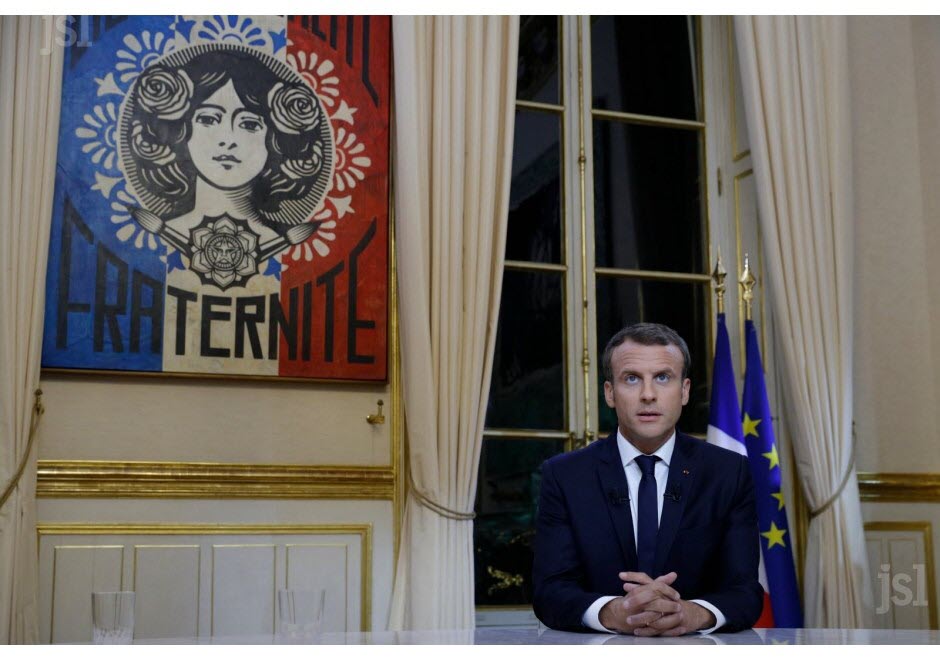
France as the Embodiment of Two Opposing Paradigms
There are some countries in the world that are something more and more important than their actual selves. These countries are not just countries, but also paradigms. They are the incarnations of certain ideologies, principles, policies and ideals. Speaking in Platonic/Aristotelian terms, such countries as the corporal objects/matters are the embodiments of the certain incorporeal forms (idees, ideas, non-physical essences of things). For this reason, the rise and fall of countries as paradigms result in the rise and fall of the ideologies, principles, policies and ideals that they represent. For this reason, it is no surprise that today socialist ideas have fallen to disfavor after the collapse of the USSR despite the continuation of the capitalist system with all the ills that it creates.
The example of the USSR signals one important point. Although some countries are the embodiments of certain ideologies, principles, policies and ideals, in time, a disparity may emerge between the actual country and these concepts. When this happens, these countries cease to be paradigmatic countries and turn into the false representatives of what they are believed to embody. Although the USSR was founded on the Marxist (and Leninist) version of socialism, soon after the Bolshevik revolution, particularly after the death of Lenin, the Union turned into an irrational Stalinist bureaucratic tyranny. As such, the USSR was simply a false image of socialism throughout its existence, although approximately up until late 1960s or so, majority of the left-wing intellectuals and politicians in the world continued to regard the USSR as the embodiment of socialism.
Lastly, a single country may be the embodiment of more than one set of ideologies, principles, policies and ideals, even rival ones. The USA, embodying the ideas of freedom and entrepreneurship is at the same time the embodiment of capitalist exploitation and imperialist aggression. Meanwhile, the USSR calls up equalitarian and socialist ideals, as well as tyranny. Today, Cuba represents the determined resistance against imperialism for some, as well as an outdated authoritarian polity for others.
With respect to disparity between the actual and the ideal and the existence of more than one “essence” in a single body, the significance of images at the practical level comes to light. Before we get into the substance, appearances and accepted opinions shape our perceptions and inspire a priori judgements. Through those a prioris we perceive, interpret, and judge things. That is why countries, particularly those who have a claim in global politics invest significantly to their images, because the latter provide the countries with either hegemonic power or weakness in the international domain by increasing or reducing their soft powers.
Take the example of the USA. This country, with its giant cinema industry, successfully created an image for itself exemplified by the buzzword of the “American dream.” This image was so well constructed and was so strong and instrumental that it was the main leverage of the USA during the Cold War against the USSR. Many of us who were exposed to Hollywood movies revered Rambo against the “skinny Charlies,” knowing nothing about the Vietnam War except the images we were being bombarded with. The western movies made us believe that the only purpose of the “innocent white man” was to defend his home against the bloodthirsty Indian assailants, whereas the reality was almost diametrically opposite. We can even claim that neither the American economy nor its armaments, but Hollywood and McDonalds won over the Soviet bloc.
France is one of those paradigmatic countries. The great traditions of enlightenment, republicanism, human rights, and rule of law are all in one way or another are associated with this country. Such associations make out the France of liberté, égalité, fraternité a model for democracy and progress. For this reason, for many citizens of the world, France is not just a country but also an ideal, a telos to reach. It is this association between the country and the principles that renders the permanence of France as one of the highly respected countries in the world. As such, France is also a country that contributed significantly to the construction of the “European values,” i.e., respect for human dignity and human rights, freedom, democracy, equality and the rule of law, that are supposed to bind the European Union countries to one another[1] making up the contemporary idea of Europe. These values also make much of the soft power of the EU.
However, at the same time, France is a paradigm of some other, quite opposite idee. With its long tradition of colonialism and ethnocentrism, France is one of the paradigmatic countries of imperialism and orientalism. It is one of the archetypes of Western imperialism and exploitation of the native populations in America, Africa, and Asia.
As such, France is a country that bears two opposite sets of idees in itself, similar to how Jesus Christ in Catholic theology has two united but distinct natures in one body. These two coexisting idees united in the sense that France’s achievements in history were very much a result of its usurpation of the wealth and resources of the people it colonized, are in analytical terms distinct and in a constant state of collision. In different times, one of the two idees prevails giving France its actual character at that time. On the other hand, the well solidified image of France as the cradle of enlightenment, democracy, and human rights often curtails these changes, and helps France to preserve its ideological and cultural hegemony, hence its soft power.
As mentioned above, the France of liberté, égalité, fraternité is the paradigm of enlightenment, republicanism, human rights, and rule of law. Rule of law derived from constitutionalism and separation of powers lies behind the idea of republicanism for obliging public and political authorities to respect constitutional principles, which first and foremost, seeks to protect fundamental rights of the citizens stated in 1789 Declaration of the Rights of Man and of the Citizen. Unfortunately, constitutionalism, separation of powers, and rule of law have been under the attack of the French authorities for some time. This ongoing process is worrisome for bearing the potential to bring the France of liberté, égalité, fraternité into ruins. As such, France is at the risk of turning into an image, no matter how satin it may be. This process is also worrisome for having the potential to seriously impair the contemporary idea of Europe based on the European values.
This article will reflect on the struggle of the French authorities against the France of liberté, égalité, fraternité by reviewing the attempts to criminalize the negation of a specific characterization of the 1915 events by circumventing the French Constitution. This review will expose the obsession of some French authorities to impose certain views with respect to controversial historical disputes on the historical scholarship and public opinion by way of legislating laws despite unconstitutionality of such initiatives. In the last section, the article will briefly address the undesirable results of French authorities’ fight against the France of liberté, égalité, fraternité for the EU.
The 1915 Events, Fanatical Obsessions, and Unbridled Populism
On 5 February 2019, at a reception hosted by the Coordination Council of Armenian Organizations of France (CCAF), French President Emanuel Macron declared his intention to mark 24 April as the commemoration day of the “Armenian genocide” in France. In fact, Macron had already made his plan public long before this. On 31 January 2018, at the same reception of the same organization and on 11 October 2018 during his visit to Yerevan on the occasion of the 17th Summit of Francophonie that took place in Yerevan,[2] Macron announced that he was set to add 24 April to French national calendar as the commemorative day for the “Armenian genocide.”
From one angle, one may argue that Macron’s statements are indeed not worthy to mind much, and she might be right. If realized, marking 24 April as the commemoration day of the “Armenian genocide” would be a non-binding decision of Macron himself that does not require the consent of the relevant branches of the French polity. What Macron would actually “achieve” would be to utilize the French law on the monopoly of the executive power which allows a simple commemoration day to be decided by the pouvoir règlementaire (regulatory power). As to that, while the establishment of commemorative days is simply between the two lips of the pouvoir règlementaire, the same is also true for their removal. Therefore, at least theoretically, the next president of France may annul Macron’s act in one stroke. Also, one may point out the dire straits that Macron faces because of the Yellow Vests Movement, which shakes the political ground on which he stands and argue that Macron’s act is just a mediocre populist political move to achieve the support of French-Armenians in a context in which his popularity is in rapid decline. Lastly, it could be underlined that recently in France (and most of the Western countries), there has been a fever of commemorations of the past events as a result of the booming of the “commemorative culture,”, although this inflation also spirits the public attention away from those events due to the clichés it creates.
While all these might be solid arguments and enough reasons to avoid wasting time and paper to comment, from another angle, Macron’s act needs to be analyzed with care as both a pathologic and a symptomatic example of France drawing sword against its own celebrated ideas of liberté, égalité, fraternité. In fact, this has been a process going on for two decades or so, since Macron’s act is not a spick-and-span move, but a new version of the old attempts of his predecessors. As to that, as shall be mentioned below, it should be recalled that Macron’s predecessors Francois Hollande on 9 February 2017 announced the same intention. The context in which Hollande made this statement is indeed more important than the statement itself for revealing the background and motive of this act.
Attempts to Circumvent the French Constitution
In May 1998, French National Assembly approved a bill to recognize the 1915 events as “Armenian genocide”. The Senate and the President also approved this one sentence bill stating “France publicly recognizes the Armenian genocide of 1915” in November 2000 and January 2001, respectively.[3] As such, France jumped into the caravan of the countries that decided to associate an historical event with a specific character by law. Following the adoption of this law, another process began. From then on, the aim was to criminalize the negation of the characterization of the 1915 events as genocide. In fact, both the adoption of the 2001 bill and the following process turned into a war of France against the France of liberté, égalité, fraternité.
In October 2006, a draft bill to penalize the contestation of the existence of the “Armenian genocide” was passed by 106 votes to 19 in the French National Assembly that houses 577 deputies (hence, by 18% of votes). The authors of the bill referred to the 1990 Gayssot Law that penalized the denial of the Holocaust to justify their act.[4]
Although the Government and the Conference of Presidents of the Senate blocked the bill for five years, in May 2011 Serge Lagauche brought the bill to the Senate by stating that the bill was to complete the 2001 Law. He argued that while France recognized the Holocaust and the “Armenian genocide” as genocides, only the denial of the former was penalized by law.
The Senate rejected this bill by 196 votes to 74 following a recommendation of Senate’s Law Commission, which underlined the incompatibility of this bill with the French constitution. Senate’s rejection of the bill was welcomed by some national and international organizations. Reporters without Borders, for example, gratified the rejection by partially stating the following:
Like other genocide-denial laws, it violated the principle of protecting freedom of expression and opinion and supported the idea of an official history. Instead of trying to be historians, the senate has given priority to dialogue.[5]
Nonetheless, six months later in December 2011 Valerie Boyer, an MP from the then French President Nicholas Sarkozy’s party, once again proposed a similar bill seeking the same goal. Whereas the previous bill openly referred to 1915 events, this time the bill did not directly refer to those events. It did so indirectly but surely with the words “denial of genocides recognized by French law.” In order to render her case stronger, Boyer tried to convince the MPs that her proposal was not a memory law, since by the mid-2000’s memory laws began to draw the reaction particularly of the historians for limiting the scope and communication of the findings of the historical scholarship. She also referred to wider European resolve to fight racism and xenophobia.[6] By this way, she framed the negation of the characterization of the 1915 events as genocide as racism and xenophobia. The bill was brought to discussion in the National Assembly only a few days before Christmas, when at most fifty MPs were present. The bill was passed in the National Assembly, although the records of the voting were not made public, making it impossible to know how many MPs voted for the bill.[7] In January 2012, the Senate approved the bill by 127 votes to 86 out of a total of 348 votes amounting to 36% of the total votes in the Senate.
In February 2012, French Constitutional Council, the highest authority in France, the mandate of which is to the ensure constitutionality of the laws, rejected the Boyer Bill by labelling it an “unconstitutional attack on freedom of expression” for attempting to punish “anyone contesting the existence of … crimes that legislators themselves recognized or qualified as such.”[8] The Council, which referred to the 1789 Declaration of the Rights of the Man and of the Citizen and the 1881 French Law on freedom of press in its verdict stated that legislation should “not to enter into the realm of responsibility that belongs to historians.”[9] Last but not least, the Council, as the highest authority in the realm of law in France, openly invalidated the attempts to criminalize the negation of a specific characterization of events as a crime unless determined by a valid tribunal.
The Council’s verdict in 2012 should have ended the attempts to criminalize the negation of the characterization of 1915 events as genocide for good. However, this is not what happened; France was determined in its fight against the France of liberté, égalité, fraternité.
Right after the Council’s verdict, President Sarkozy announced that he ordered his government to redraft the law with a reviewed language.[10] President Sarkozy lost the presidential election in April-May 2012 to Francois Hollande, but the new President followed the footsteps of his predecessor. In July 2012, the Coordinating Council of Armenian Organizations of France (CCAF) declared that President Hollande was willing to criminalize the negation of the characterization of the 1915 events as genocide. Hollande’s office confirmed CCAF’s statement. The Office stated that the matter was to find a way to structure the text of the bill in conformity with the constitution.[11] In fact, this statement revealed what was already obvious, that is, the Boyer Bill of December 2011 that mentioned “genocides recognized by French law” was indeed not aiming at that per se, but specifically at the criminalization of the negation of the thesis of Armenian genocide.
In October 2015, French citizen Vincent Reynouard, who was convicted for denying the Holocaust on the ground of the 1990 Gayssot Act, applied to the French Constitutional Council. Reynouard claimed that the Gayssot Act was a violation of both freedoms of expression and opinion, and the principle of equality before the law. He argued that the 1990 Gayssot Act penalized only the denial of the crimes against humanity that were established by the Charter of the International Military Tribunal of 1945 and not the other crimes of the same sort, which were not determined by a court verdict. For that reason, he demanded the de-criminalization of the Holocaust denial. He specifically underlined the case of the “Armenian genocide” to substantiate his claim. Upon Reynouard’s application, French-Armenian associations intervened and asked for the criminalization of the denial of the Armenian genocide upon the example of the Holocaust.[12]
In January 2016, the French Constitutional Council declared its judgment. As to the question of equality before the law, the Council underlined the difference between the crimes established by French or valid international courts and those either not established by any court or by a foreign national court. As to the rightfulness of the Gayysot Act, the Council judged that denial of the crimes established by French or valid international courts was in itself an incitement to racism and antisemitism. The Council stated that whereas Holocaust is a crime against humanity established by an authorized court and its denial is an incitement to racism, none of these two was true with respect to the 1915 events. As such, the Council made a categorical distinction between the Holocaust and the events of 1915.
However, this second judgment of the French Constitutional Council, too, was not able to bring an end to the efforts to criminalize the negation of the characterization of the 1915 events as genocide. Defeat after defeat, the advocates of criminalization continued their endeavor to find “proper wording” for a bill to make it compatible with the constitution as it was stated by the CCAF in 2012. The fight of France against the France liberté, égalité, fraternité continued.
Just twenty days after Council’s verdict, President Holland at the annual dinner of the CCAF publicized his plan to reassert a revised bill once again. He also publicized that “the best legal expert in our country,” the former European Court of Human Rights judge Jean Paul Costa, was to assist the redrafting of the bill. At this event, Hollande stated that “Costa is one of the best legal experts in our country. I think that his text would stop all possible speculations. I know that the rejection of the draft that was prepared in 2012 caused frustration”[13] He added that the bill was to “to protect the memory of the Armenian Genocide” and that a law that would be condemned by the European Court of Human Rights would be “a terrible defeat for France and the Armenian Cause.” He further noted that the initiative had nothing to do with future elections.[14]
In July 2016, some amendments to the French Law of Equality and Citizenship were proposed. One of those amendments was to ban “denial, gross minimization or trivialization of crime of genocide, crime against humanity or war crime [that France recognized by law], if it incites to racial, ethnic, national or religious hatred or violence.” Once again there was no open reference to the 1915 events, however the particular specification of crimes recognized by France by law was a clear reference to those events. This was a “proper wording” for the penalization of the negation of the characterization of the 1915 events. The amended bill was passed in French National Assembly by only 21 votes where total number of votes is 577 (in other words only 3.6% of the deputies voted for this bill). The bill also passed from the Senate by 146 votes (%25 of the entire votes in the Senate).
Eventually on 26 January 2017, French Constitutional Council again rejected this new bill. The Council stated that the Law of 29 July 1881 criminalizing “actions of incitement to discrimination, hate or violence in regard to a person or group of persons because of their origin or their belonging or not belonging to a particular ethnicity, nationality, race or religion” was currently in force,[15] hence there was no need for the amended bill in question.
The Council also stated that “extreme negation, minimization or trivialization of a crime of genocide, a crime against humanity, a crime of forcing into slavery or a crime of war” do not necessarily constitute an incitement to violence or hate of a racist or religions nature… punishable by criminal law.” Therefore, “actions of extreme negation, minimisation or trivialisation of these crimes cannot, in a general manner, be considered by themselves an abuse of the free exercise of expression and communication infringing on the public order and the rights of others.”
The Council once again underlined the necessity of a valid court judgement to establish the criminal nature of an act, the negation of which is demanded to be punished. In other words, the Council underlined that “a crime of genocide, a crime against humanity, a crime of forcing into slavery or a crime of war” should be established by a valid court, not by public opinion.
Accordingly, the Council in its verdict, which also referred to the Article 11 of the 1789 Declaration of the Rights of the Man and of the Citizen that states “the free communication of thoughts and opinions is one of the most precious rights of humanity: every citizen should speak, write, and print freely, except in regard to the abuse of this liberty in the cases determined by the law,” ruled that the amended bill was an infringement to the freedom of expression and it was neither necessary nor proportionate. By stating that “…these provisions introduce an uncertainty of the legality of remarks or writings on facts that may be the subject of historical debate…,” the Council also acknowledged that the character of the 1915 events is still open to scrutiny of the historians.
Again, just less than two weeks after the Council’s verdict, President Hollande on 9 February again at the annual dinner of the CCAF, expressed his commitment to criminalize the “denial” of the Armenian genocide, although he also stated that the Council’s verdicts are binding. He continued by stating France’s duty to support all initiatives seeking the recognition of the “Armenian genocide.” He also explained the plans to institute a national commemoration day of all genocides and war crimes, including the “Armenian Genocide”.[16]
French Constitutional Council’s Resolve on the 1915 Events
As this brief overview reveals, at least since mid-2000s, a persistent process has been on stage in France. Not only some deputies and senators, but also the heads of the French state have zealously tried to find ways to bypass the constitution and its defender, the French Constitutional Council. These legislative initiatives related to the 1915 events have taken a subversive character; they have turned into impudent acts against the constitution and democratic procedures of France.
The unconstitutionality of criminalization of the negation of the characterization of the 1915 events as genocide was more or less obvious from the start. This was probably the reason why the Senate blocked the 2006 bill for five years. As can be seen from the percentages of the concurring and dissenting votes in the National Assembly and the Senate, there have always been a sizeable number of deputies and senators opposing these bills. In other words, although headlines in press like “French National Assembly (or Senate) voted for the bill” gives the impression of unanimity, in reality, there have been significant disagreements with respect to these bills in both organs, most probably because of the mindfulness to the unconstitutionality of the bills. As to this, the fact that the 2016 amendments to the French Law of Equality and Citizenship was passed in the National Assembly by only 21 votes, amounting to 3.6% of the total votes, is striking.
This example is instructive as well; it reveals not only the opposition of some French deputies (and senators) to the attempts to criminalize the negation of a specific characterization of the 1915 events, but also the deceitful ways that the proponents of criminalization employ such as bringing the bills to vote when most of the deputies or senators are absent. If the National Assembly and the Senate are the organs where the will of the people are to be heard, these tricky methods are threats to the functioning of these organs, and the functioning of democracy in consequence.
As said above, French Constitutional Council rejected the bills aiming at the criminalization the negation of the characterization of 1915 events as genocide two times. Moreover, in the case of Vincent Reynouard, the Council indirectly made the same resolve. Yet, these had not been enough for some deputies and senators, as well as the three successive French presidents to end their unconstitutional fervor. Instead, they have appealed to questionable methods such as floundering around to find “proper wording” for the bills. Certainly, legislators should draft laws in accordance with the constitution. Actually, this is what is supposed to be done. However, in case of the legislative initiatives regarding 1915 events, these attempts are not about bringing the content of the bill in compliance with the constitution, but to perform “aesthetic operations” to circumvent the constitution.
Such “aesthetic operations” have turned into deceiving of the French citizens for hiding the real intent behind the bills. The bills after 2006 were drafted within an anti-racism and anti-hate framework to escape direct references to the 1915 events, notwithstanding the fact that, as the French Constitutional Council stated, there has been an anti-racism and anti-hate law in France since 1881. This also reveals that the bills were purely and simply to criminalize specifically the negation of the characterization of 1915 events as genocide. This is also evident from the statement of Francois Hollande at the CCAF dinner on 28 January 2016 in which he directly referred to the “Armenian cause” while talking about the criminalization bill. The fact that Sarkozy, Hollande, and Macron made statements about the criminalization bill at CCAF events is another eye-catching fact in this regard. Moreover, although Valerie Boyer and others claimed that the laws were not memory laws, Hollande defied such arguments by stating that the mission was “to look into our law in a solid, indisputable way to allow to protect the memory of the Armenian Genocide” (emphasis added).[17] In brief, both some legislators and the three succeeding presidents elected by the votes of the citizens did not abstain from misinforming the French citizens.
French Constitutional Council plainly determined that 1915 events fall within the realm of responsibility that belongs to historians. By these words, the Council articulately disclosed that not the legislators, but the scholars should research, discuss, and come to conclusions about different aspects of 1915 events. By that, the Council affirmed that the persistence of some of the French legislators and executives not only to assign a certain character to 1915 events, but also to criminalize the negation of this certain character is a serious blow against historical scholarship; an attempt of the politics to go beyond its own legitimate sphere and to absorb other spheres that should remain outside of partisan advocacy. As to the transgression of the boundaries of the sphere of politics, by referring to the 1789 Declaration of the Rights of the Man, the Council also clearly stated that attempts to criminalize negation are an immense violation of freedom of expression However, this did not stop some French legislators and presidents from such initiatives.
While making all these points, French Constitutional Council underlined the correct way of establishing a crime. The Council’s explanations were indeed a lesson on the principle of separation of powers first put into words by great French political philosopher Montesquieu as the spine of democracy, for those who wanted to hear.
In its verdicts in 2012, 2016 and 2017, the French Constitutional Council established that there is a categorical difference between crimes established by a French court or an international court the validity of which France recognizes and “crimes” that have not been established by these two. For this reason, the Council judged that while negation of the factuality of Holocaust amounts to racism and hate, hence a crime, in itself; negation of the characterization of 1915 events as genocide per se is not. Crime occurs only if one incites racism and hate while negating 1915 events as genocide.
By emphasizing that crimes established by French or valid international court and “crimes” that were not established through these mechanisms are not of the same quality, the Council affirmed that establishing a crime was under the authority of the jurisdiction and neither public opinion nor legislation can judge about the criminal nature of a given act. In fact, by this way the Council also underlined the methodological faults, hence the questionable nature of the 2001 law that recognized the 1915 events as genocide.
The Onslaught of the French Authorities against the France of Liberté, Égalité, Fraternité
This brief survey reveals the fixated diligence of the legislation and executive powers in France to sidestep the constitution, which took the form of a political blood feud. As mentioned above, when the Council for the last time ruled out the bill seeking criminalization, President Hollande admitted the defeat that these initiatives faced. Actually, this statement could have shown Hollande’s political maturity and respect to the Constitution, which could have only been appreciated. However, Hollande added that France was resolute in supporting all initiatives seeking the recognition of the Armenian “genocide.” Given that in 2001 France had already recognized 1915 events as genocide by law, Hollande’s statement can only be understood as the resolve of France to support the recognition attempts in other countries. He also expressed his plans to establish a national commemoration day of all genocides and war crimes, including the “Armenian Genocide” that was copycatted by Emanuel Macron, as stated above.
Here we face an inexplicable mindset. It seems that French presidents retaliate against the French Constitutional Council in a tit-for-tat kind of logic, giving the message that if the Constitution prevents the legislation, the executive would move up a gear on its own path. As such, Hollande put the legislation and the executive against the judiciary creating a friction between the powers in a way that risks the functioning of the system.
Besides that, it also requires scrutiny how Hollande sees a right to lobby in other countries about an issue which is a political concern to French. Possible arguments such as recognition of the 1915 events is a matter of human rights and France as the defender of human rights can and shall be supportive to such initiatives abroad are vain for the fact that French Constitutional Council has pointed out the correct way of establishing a crime three times, which is going through the legal procedures in valid courts. In this sense, France’s political lobby for recognition of the 1915 events as genocide in other countries means directing the target countries to adopt extra-legal ways.
Furthermore, if concerns over human rights were the real objective, then what should be expected from the French president would be to lobby for the recognition of all “crimes,” rather than being selective and fixated on just one claim. For example, Hollande could have encouraged Germany as one of the main EU countries to be a good example to the entire world by recognizing the Herero and Nama massacres as genocide perpetrated by the German empire in 1904 in Namibia. Instead of doing that, on 9 February, again at the annual dinner of the CCAF, President Hollande applauded the resolution on the 1915 passed in German Bundestag,[18] which does not take any step with respect to the recognition of the “Herero and Nama genocides.” Unfortunately, his successors Emanuel Macron walks through the footsteps of his predecessor.
This insistence, which disregards and trivializes the constitution embracing the fundamental principles of the France of liberté, égalité, fraternité is a threat to constitutionalism that protects the rights of the citizens against the arbitrariness of the political power in France. Theoretically speaking, the next step of this obsession could be the usurpation of the powers of the judiciary, which would mean an end for the separation of powers in France. If this happens, democracy and liberties of the French citizens would be severely endangered.
What we see in France is an unbridled populism falling upon the checks and balances provided by the constitution. The unbridled populism also results in the charge of the public opinion on the opinion of the court. The inevitable consequence of this process is the impairment of the rule of all law, freedom of expression, as well as restrictions on the French academia, since political authority seeks to enlarge its domain towards the legitimate domain of historical scholarship.
As to populism, it might be interesting to note that the genocide law of 2001 was brought to force in 29 January 2001, approximately 1.5 months before the municipal elections (18 March 2001). Boyer Bill was introduced after a major crisis that her (hence Sarkozy’s) party encountered between May and September 2011[19] and four months before the presidential election that took place on 23 April-7 May 2012. Francois Hollande’s statement just twenty days after the French Constitutional Council rejected French citizen Vincent Reynouard about the irrelevance of his will to draft a new law on criminalization with the upcoming elections in this context in fact points out the relation between the elections and the initiatives for criminalization. Some believe that July 2016 amendments to the French Law of Equality and Citizenship were a desperate attempt, the failure of which was predicted by Hollande. Those who believe so think that this act was to convince the French-Armenians that Hollande was determined to do everything for the “Armenian cause.”
Alarmingly, the prevalence of populism of this sort is likely to severely damage the principles and ideals on which the France of liberté, égalité, fraternité has been built upon. As the above review hints, there is such a trend going on in France. If that trend continues and reaches a certain level, the France of liberté, égalité, fraternité will inevitably cease to exist, leaving behind just an image and the “other France” will prevail. In fact, a closer scrutiny of the ideological background of legislative initiatives would disclose the orientalist and imperialist dispositions. The latest statements of the French President Emanuel Macron on 5 February 2019 regarding his resolve to establish 24 April as the commemoration day of the “Armenian genocide” is yet another irresponsible populist act by the head of the French state that should be interpreted from this perspective.
The France of Liberté, Égalité, Fraternité vs. the “Other France” and the Future of the Europe
The threats against the France of liberté, égalité, fraternité on their own are an enough reason to grow apprehensive. Yet, the France of liberté, égalité, fraternité is something more than and more important than France. For that, we must be aware of the wider consequences of the alarming tendencies in France, the effects of which would certainly exceed the borders of France.
The France of liberté, égalité, fraternité as the cradle and the embodiment of enlightenment, republicanism, human rights, freedom of expression, and rule of law is one of the cornerstones of the contemporary idea of Europe based on unity around European values, i.e, respect for human dignity and human rights, freedom, democracy, equality and the rule of law. In fact, we can find the roots of most of the European values in the principles and ideals that were born in and associated with the France of liberté, égalité, fraternité. Therefore, the collapse of the France of liberté, égalité, fraternité would mean a grave injury for the European values and the contemporary idea of Europe incarnated in the EU.
Today, the EU is in a major state of crisis. The Brexit, “migrant crisis,” cracks between the “old” (Western European countries) and the “new” Europes (post-Soviet countries of Central and Eastern Europe), rise of extreme right, antisemitism and islamophobia, the recent spat between France and Italy, and other complicated issues drive many political scientists and thinkers to question the future of the EU. They even question whether there is any future for the EU at all. Irresponsible and unprincipled policies of the French authorities just add to the crisis that the EU encounters.
In fact, the threat the EU faces is the same, namely, the split between the values and the actual deeds; populism and populist pragmatism that does not draw back from rejecting the European values and avoiding the established procedures. Such practices nibble the EU from within. Furthermore, as the world, particularly the countries to its East watches the EU and its member states, specifically the paradigmatic ones, heedfully, its soft power weakens as the observers notice the incompatibilities between the theory and the practice of the EU. Today one of the burning challenges facing the EU is hybrids threats and within this framework information warfare. Although the EU has invested a lot to this cause, it still has not achieved significant results. The reason for that is not the persuasiveness of the opponent but the weakening persuasiveness and credibility of the EU.
In such a context, the fight of the French authorities against the France of liberté, égalité, fraternité amounts to a great challenge for the EU as well. As France as a paradigm of enlightenment, republicanism, human rights, and rule of law fades away leaving just an image behind it, ideological and cultural hegemony of the EU evaporates too. Therefore, French politicians are not only responsible before the France of liberté, égalité, fraternité, but also before the EU and the “dream” that the EU strives to turn into reality.
Photo: www.lejsl.com
[1] “Values,” European Parliament, accessed February 14, 2019, https://europarlamentti.info/en/values-and-objectives/values/.
[2] As to Francophonie summits, one should keep in mind that Francophonie is a neo-colonial concept that aims to keep the former French colonies in the orbit of their former colonial master, i.e., France.
[3] “France Law,” Armenian National Institute, accessed February 14, 2019, https://www.armenian-genocide.org/Affirmation.170/current_category.7/affirmation_detail.html.
[4] Lara Marlowe, “French make denial of Armenian genocide a crime,” Irish Times, October 13, 2006, https://www.irishtimes.com/news/french-make-denial-of-armenian-genocide-a-crime-1.1015071.
[5] “Senate rejects bill criminalizing denial of the Armenian genocide,” Reporters without Borders, accessed 14 February 2019, https://rsf.org/en/news/senate-rejects-bill-criminalizing-denial-armenian-genocide.
See also, Rene Lemarchand, “Denying the Right to Deny,” New York Times, February 23, 2012, accessed February 14, 2019, https://www.nytimes.com/2012/02/24/opinion/denying-the-right-to-deny.html.
[6] Joachim J. Savelsberg, “French Denial Legislation,” Joachim J. Savelsberg Blog, accessed February 14, 2019, https://www.joachimsavelsberg.com/french-denial-legislation.html.
[7] Savelsberg, “French Denial Legislation.”
[8] “French genocide law: President Sarkozy orders new draft,” BBC News, February 29, 2012, https://www.bbc.com/news/world-17196119.
[9] “Nicolas Sarkozy orders new Armenian genocide law,” The Telegraph, February 28, 2012, https://www.telegraph.co.uk/news/worldnews/europe/armenia/9112129/Nicolas-Sarkozy-orders-new-Armenian-genocide-law.html.
[10] “French genocide law: President Sarkozy orders new draft.”; “Nicolas Sarkozy orders new Armenian genocide law.”;
Scott Sayare, “French Council Strikes Down Bill on Armenian Genocide Denial,” New York Times, February 28, 2012, https://www.nytimes.com/2012/02/29/world/europe/french-bill-on-armenian-genocide-is-struck-down.html.
[11] “French President Hollande vows new Armenia ‘genocide law’,” BBC News, July 8, 2012, https://www.bbc.com/news/world-europe-18758078.
[12] Maxime Gauin, “Stopping the Censors: The Final Defeat of Armenian Nationalism at the French Constitutional Council in January 2017,” Review of Armenian Studies 36 (2017); 88-89.
[13] “Hollande: genocide denial law will be put on the agenda again,” Agos, January 2, 2016, http://www.agos.com.tr/en/article/14232/hollande-genocide-denial-law-will-be-put-on-the-agenda-again.
[14] “Francois Hollande: France to Draft New Law Criminalizing Armenian Genocide Denial,” Massis Post, January 29, 2016, https://massispost.com/2016/01/francois-hollande-france-to-draft-new-law-criminalizing-armenian-genocide-denial/.
[15] In April 1939, some amendments were made to this law to make it compatible to fighting racial hate speech. Another amendment in this line known as the Pleven Act was made to this law in 1972.
[16] “French President Hollande Attends Annual Armenian Dinner in Paris,” The Armenian Weekly, February 9, 2017, https://armenianweekly.com/2017/02/09/hollande-ccaf-2017/; “Turkey must move towards recognition of Armenian Genocide – says François Hollande,” ArmenPress, February 9, 2017, https://armenpress.am/eng/news/878083/turkey-must-move-towards-recognition-of-armenian-genocide-%E2%80%93-says-fran%C3%A7ois-hollande.html.
[17] “Francois Hollande: France to Draft New Law Criminalizing Armenian Genocide Denial.”
[18] “French President Hollande Attends Annual Armenian Dinner in Paris.”
[19] Maxime Gauin, “Stopping the Censors: The Final Defeat of Armenian Nationalism at the French Constitutional Council in January 2017,” Review of Armenian Studies 36 (2017); 84.
© 2009-2025 Center for Eurasian Studies (AVİM) All Rights Reserved
No comments yet.
-
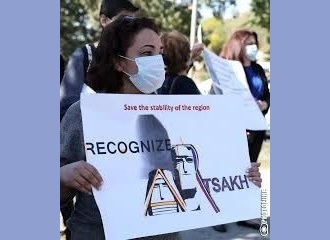 THE KARABAKH CONFLICT AND THE LAWFARE OF ARMENIA: ARMENIA’S CAMPAIGN FOR REMEDIAL SECESSION (II)
THE KARABAKH CONFLICT AND THE LAWFARE OF ARMENIA: ARMENIA’S CAMPAIGN FOR REMEDIAL SECESSION (II)
Turgut Kerem TUNCEL 11.11.2020 -
 THE JUDGEMENT OF THE EUROPEAN COURT OF HUMAN RIGHTS GRAND CHAMBER ON PERİNÇEK v. SWITZERLAND CASE in PERSPECTIVE - 1: PRELIMINARY REMARKS
THE JUDGEMENT OF THE EUROPEAN COURT OF HUMAN RIGHTS GRAND CHAMBER ON PERİNÇEK v. SWITZERLAND CASE in PERSPECTIVE - 1: PRELIMINARY REMARKS
Turgut Kerem TUNCEL 16.10.2015 -
 THE EUROPEAN COURT OF HUMAN RIGHTS’ APPROACH TO NEGATIONISM AND REVISIONISM AND SOME DEDUCTIONS ON PERINÇEK V. SWITZERLAND CASE
THE EUROPEAN COURT OF HUMAN RIGHTS’ APPROACH TO NEGATIONISM AND REVISIONISM AND SOME DEDUCTIONS ON PERINÇEK V. SWITZERLAND CASE
Turgut Kerem TUNCEL 16.11.2015 -
 THE GRAIN INITIATIVE AND THE BLACK SEA SECURITY - II
THE GRAIN INITIATIVE AND THE BLACK SEA SECURITY - II
Turgut Kerem TUNCEL 03.08.2023 -
 THE GRAIN INITIATIVE AND THE BLACK SEA SECURITY - I
THE GRAIN INITIATIVE AND THE BLACK SEA SECURITY - I
Turgut Kerem TUNCEL 03.08.2023
-
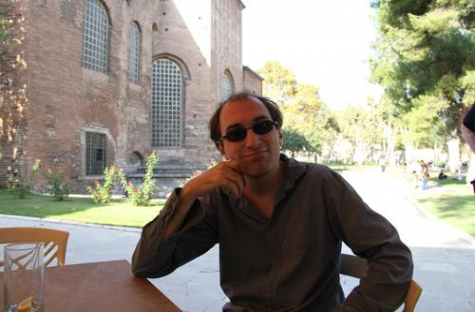 MR. NALBANDIAN DID NOT TELL THE TRUTH
MR. NALBANDIAN DID NOT TELL THE TRUTH
Maxime GAUIN 11.09.2014 -
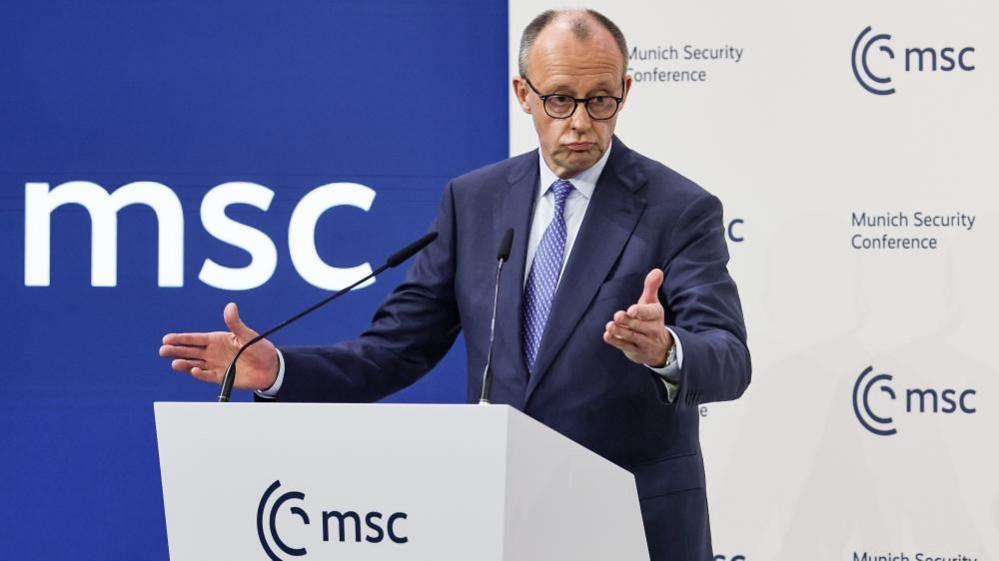 THE INTERNATIONAL ORDER BASED ON RIGHTS AND RULES LEAVES ITS SEAT TO A NEW WORLD DISORDER
THE INTERNATIONAL ORDER BASED ON RIGHTS AND RULES LEAVES ITS SEAT TO A NEW WORLD DISORDER
Teoman Ertuğrul TULUN 23.02.2026 -
 TÜRKİYE’S MEDIATION IN THE UKRAINE-RUSSIA WAR
TÜRKİYE’S MEDIATION IN THE UKRAINE-RUSSIA WAR
Mehmet Oğuzhan TULUN 23.09.2024 -
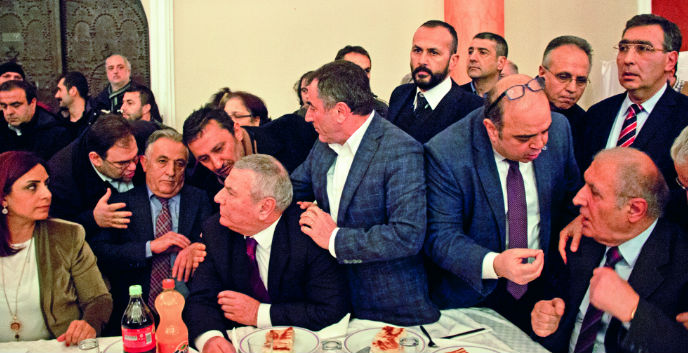 THE DISPUTE OVER THE ELECTION OF THE ARMENIAN PATRIARCH OF ISTANBUL CONTINUES
THE DISPUTE OVER THE ELECTION OF THE ARMENIAN PATRIARCH OF ISTANBUL CONTINUES
Mehmet Oğuzhan TULUN 27.02.2017 -
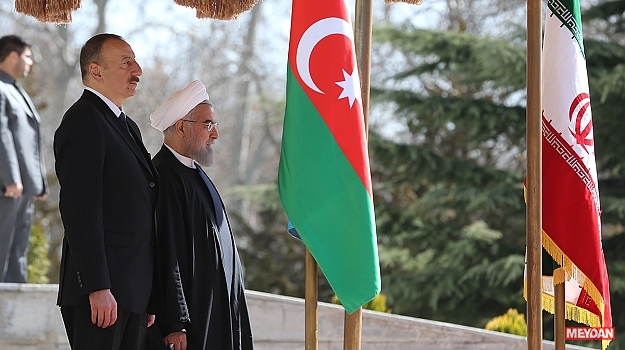 IRAN SEEKING NEW MARKETS IN THE SOUTH CAUCASUS: AZERBAIJAN
IRAN SEEKING NEW MARKETS IN THE SOUTH CAUCASUS: AZERBAIJAN
Özge Nur ÖĞÜTCÜ 18.03.2016
-
25.01.2016
THE ARMENIAN QUESTION - BASIC KNOWLEDGE AND DOCUMENTATION -
12.06.2024
THE TRUTH WILL OUT -
27.03.2023
RADİKAL ERMENİ UNSURLARCA GERÇEKLEŞTİRİLEN MEZALİMLER VE VANDALİZM -
17.03.2023
PATRIOTISM PERVERTED -
23.02.2023
MEN ARE LIKE THAT -
03.02.2023
BAKÜ-TİFLİS-CEYHAN BORU HATTININ YAŞANAN TARİHİ -
16.12.2022
INTERNATIONAL SCHOLARS ON THE EVENTS OF 1915 -
07.12.2022
FAKE PHOTOS AND THE ARMENIAN PROPAGANDA -
07.12.2022
ERMENİ PROPAGANDASI VE SAHTE RESİMLER -
01.01.2022
A Letter From Japan - Strategically Mum: The Silence of the Armenians -
01.01.2022
Japonya'dan Bir Mektup - Stratejik Suskunluk: Ermenilerin Sessizliği -
03.06.2020
Anastas Mikoyan: Confessions of an Armenian Bolshevik -
08.04.2020
Sovyet Sonrası Ukrayna’da Devlet, Toplum ve Siyaset - Değişen Dinamikler, Dönüşen Kimlikler -
12.06.2018
Ermeni Sorunuyla İlgili İngiliz Belgeleri (1912-1923) - British Documents on Armenian Question (1912-1923) -
02.12.2016
Turkish-Russian Academics: A Historical Study on the Caucasus -
01.07.2016
Gürcistan'daki Müslüman Topluluklar: Azınlık Hakları, Kimlik, Siyaset -
10.03.2016
Armenian Diaspora: Diaspora, State and the Imagination of the Republic of Armenia -
24.01.2016
ERMENİ SORUNU - TEMEL BİLGİ VE BELGELER (2. BASKI)
-
AVİM Conference Hall 24.01.2023
CONFERENCE TITLED “HUNGARY’S PERSPECTIVES ON THE TURKIC WORLD"









